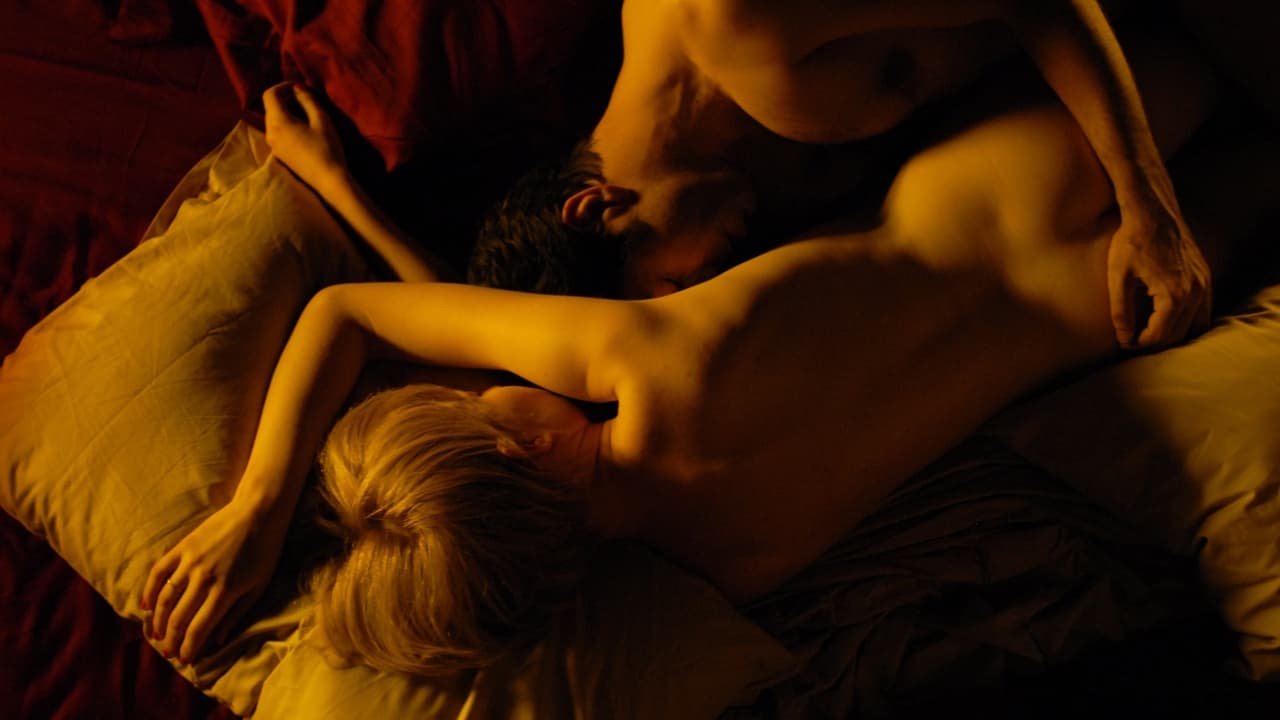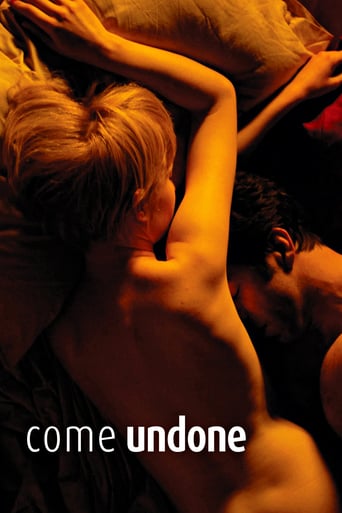

Cosa voglio di più, English title 'Come Undone', is essentially the story of an affair. It provides little context or psychological examination of its characters, makes no moral judgement and offers little in the way of justification for their actions. The Italian title (translated literally as 'What more do I want') gives more emphasis to the idea of the film literally being about just wanting something more.There doesn't seem to be any particularly deep want in Anna. Her sister might have just had a baby, but she doesn't really seem to be ready to have one with husband/boyfriend, Alessio. The relationship between them is easy-going and stable, even if there is no real passion there. He's a handyman, watches the pennies carefully; she works in administration for an insurance company. If their love life is unexciting, there's no conflict there either, certainly nothing that suggests that she's ready for an affair.There's no doubt however that she is interested in Domenico/Mimmo, a cater who turns up for one of their work functions. Anna suggests coffee, they finally manage a meeting, and eventually end up at a motel for sex. It soon becomes a regular affair, but finding the time to be together is increasingly difficult. Mimmo has a wife and two children and has to steal an hour or two while he is supposed to be at the pool swimming. Anna, plays the old working late at the office line. There's only so long before suspicions are aroused in their partners, but Anna is impatient.All Cosa voglio di più seems to be saying is that we all need a little bit of excitement outside the mundane practicalities of life. For all the passions that are raised, it's curiously detached, lacking the more gentle charm of a similar theme in Soldini's Bread and Tulips. For most films it would be the passionate affair and the exploration of deep emotional needs that would be the focus of the story, but Soldini intentionally seems to give more attention to the little banalities that have to be taken into consideration, taking time over Anna looking through brands of facewipes while she takes a call from Mimmo, or Mimmo mentally balancing the cost of paying for a motel room against the urgent needs of his children. It's refreshingly more honest about the realities of affairs, but that perhaps doesn't make for the most exciting drama.
... View MoreThis is a film I enjoyed watching it because even the awkward situations are well done. I didn't feel uncomfortable with any of the sex scenes even though the film poster could make people outside the cinema think this film would only be about the main image of the poster. I liked the fact Anna is more like a guy, she seems to be sexually practical and she even starts the touching with Domenico whereas the latter seems to be like a kid, waiting for orders of what to do next. He also seems not being afraid of his feelings for Anna and expresses what he feels; he's also the first one to say "I Love You" for example; which shows this character not as the typical jerk who enjoyed the time with the girl and then no matter he got attached to her or not, he (or she) just leaves. However, I think this film, rather than a standard film should be categorized as documentary film, enjoyable BTW or something. I didn't see such a strong connection of events leading to something specific in the whole movie. It's love affair, love, dilemma? but, what else? I don't see clearly what's the story to be told. I say documentary film because it describes so well how Anna and Domenico deal with passion and love. We learned a lot about those two concepts after watching "Come Undone" but I'm not sure we saw a story being told? Overall, I enjoyed whatever Silvio Soldini wanted to share with us though I'd die to ask him "what exactly did you have in mind, Silvio"?
... View MoreCOME UNDONE ('Cosa voglio di più', the Italian title means 'What More Do I Want') is a very slight film by the well respected director Silvio Soldini ('Bread and Tulips', 'Days and Clouds', etc), a story that seems to get mired in its own passion, unable to transmit a story line that will keep the audience's attention. Perhaps this is due to the 'too many cooks spoil the broth' concept: in addition to Soldini the story and screenplay were nursed by Doriana Leondeff, and Angelo Carbone. The cast is a strong one but the actors are just not given much to develop, leaving the audience with the repeated question 'what if...?' Anna (Alba Rohrwacher) is an accountant for an important insurance firm and lives with her longterm lover Alessio (Giuseppe Battiston) - a man who longs fro a stable longterm relationship with children, a home, etc. Anna, feeling as though the fire has fizzled in that relationship and takes up with co-worker Domenico (Pierfrancesco Favino) and the two begin a passionate affair. Now it is Anna who is considering a longterm relationship but is thwarted by the fact that Domenico is married to Miriam (Teresa Saponangelo) and has children and doesn't want to leave his wife, instead preferring passionate occasional intervals with Anna in tacky motels. It becomes a struggle of human nature - which is preferable, a stable home life or intermittent moments of passion? The actors give this film their all and the encounters between Anna and Domenico are incredibly sensuous. The problem lies with the story's lack of resolution or even momentum: it gets stuck in the process of offering a solution for the lovers. It is simply not up to the same standards as Soldini's other works - but those are fairly high standards to reach. Given the film's few flaws it is still a beautiful visual experience. Grady Harp
... View MoreSilvio Soldini is a very good director. At his best, he can give us touching, inspiring comedies like "Pane e Tulipani" or in-depth social studies like "Un'anima divisa in due".Unfortunately this film seems to be stuck in the middle, and ultimately have no point. Well acted (Giuseppe Battiston is always a guarantee), interestingly filmed, too little edited. Yes, the editor could have left some more out of it.The analysis of the Italian contemporary society (financial struggle, emptiness, fear of engagement) is quite precise, but gets lost in a never-ending (and repeating) lovers' story, everybody gets tired about. The audience tend to look forward the other characters, the whole support cast (the friends, the betrayed companions, the families), because these two really go back an forth, back and forth, back and forth...Alba Rohrwacher doesn't seem to have enough to work on, in terms of creating a complete character. She's good, but seeing her driving around for a while doesn't take the story anywhere. Pierfrancesco Favino has a more interesting character, and Teresa Saponangelo has a standardized role (as a betrayed wife and mother of screaming children) that we've seen way to often (what a missed opportunity).At the end of the 'World Première', here in Berlin, Silvio Soldini didn't really know what to say, except to thank for the polite applauses. That's the point: he has the craft, the skills, the production means and the crew to create something new and revealing. We still love you, but please wait for the inspiration, next time. A film can come out wrong like "Agata e la tempesta" and still be an enjoyable experience, but if there is nothing to say, better to pass on to the next project.Also, please have the English subtitles redone. They were pretty bad. Don't cut corners and have them done better next time. Thanks!
... View More